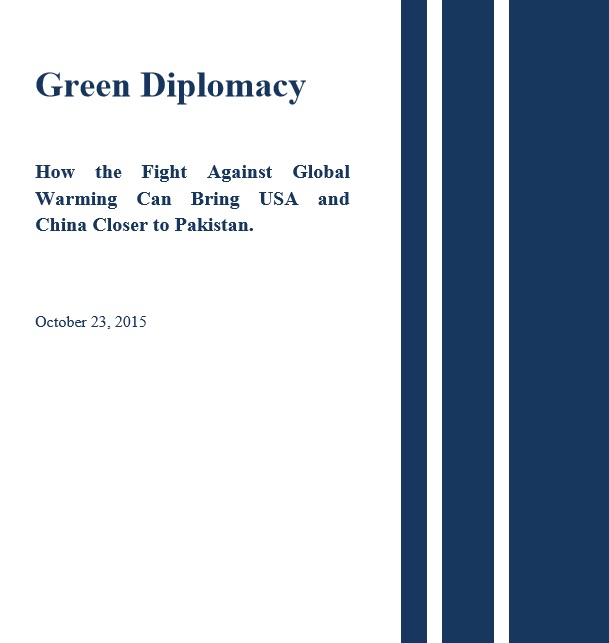Climate Change is one of the most pressing issues the world faces today. The effects of climate change have seriously impacted various countries. Before constructing adequate response actions to deal with global warming, it is essential to have a background on the challenge of climate change.
The logic of climate change is simple; the earth’s atmosphere acts like a greenhouse where different harmful gases (Carbon dioxide, sulphur, CFCs, methane etc.) absorb solar radiation that would otherwise be reflected off from the earth’s surface. This causes a greenhouse effect with the earth getting warmer because of trapping of extra solar radiations. As the world becomes increasingly industrialized, the concentration of greenhouse gases means that the temperature of earth will rise to alarming levels.i This rise in temperature changes natural weather systems, melting polar ice caps and putting the earth at a risk of disproportionately high water levels. As the global population continues to rise and demand for resources increase, the environment is expected to be impacted adversely on a greater scale.
It is also important to understand that the effects of climate change are not equally distributed. This year, heat waves and droughts resulted in large scale deaths in some regions, while floods caused destruction in others, forcing the global community to revaluate its efforts to protect the environment. Similarly, the risks from global warming being faced by all countries and regions are not the same. Pakistan is one of the countries who had suffered severely from the adverse impact on climate change. As a developing country striving to achieve socio-economic stability, Pakistan cannot tackle the climate problem alone. As the UN Climate Change Summit draws closer, Pakistan is in the process of building up a strong case for active participation in the global pledge to mitigate the effects of climate change. This conference can be the stage for the developed countries to announce plans for supporting vulnerable, developing countries. The following paper is meant for recommending certain policy options to be proposed at summit to tap opportunities which can help Pakistan tackle the adverse effects of climate change.
for more details please view pdf





